Abstract
The purpose of this qualitative study was to examine the nature of work-related stress and coping experienced by African-American family physicians. Ten African-American family physicians across the state of Ohio were interviewed using a standardized open-ended format. Interview data were analyzed through an "editing" technique and QSR Nud*ist, a qualitative software program. Patterns and themes common to the interviews were identified. Stressors presented by research participants included experiences with racism in medicine, doubt, and a strong desire to prove oneself in the medical environment. Distinctive coping strategies involved spirituality, kinship, and the development of strength and perseverance in the face of adversity. Responses to general questions on stress and coping indicated difficulties with the shift toward managed care and use of "time for self, away from medicine" types of coping strategies. Results underscored the importance of culture and race in stress and coping processes, and suggested that programs and policies addressing the specific pressures faced by African-American physicians in training and practice need to be developed.
Full text
PDF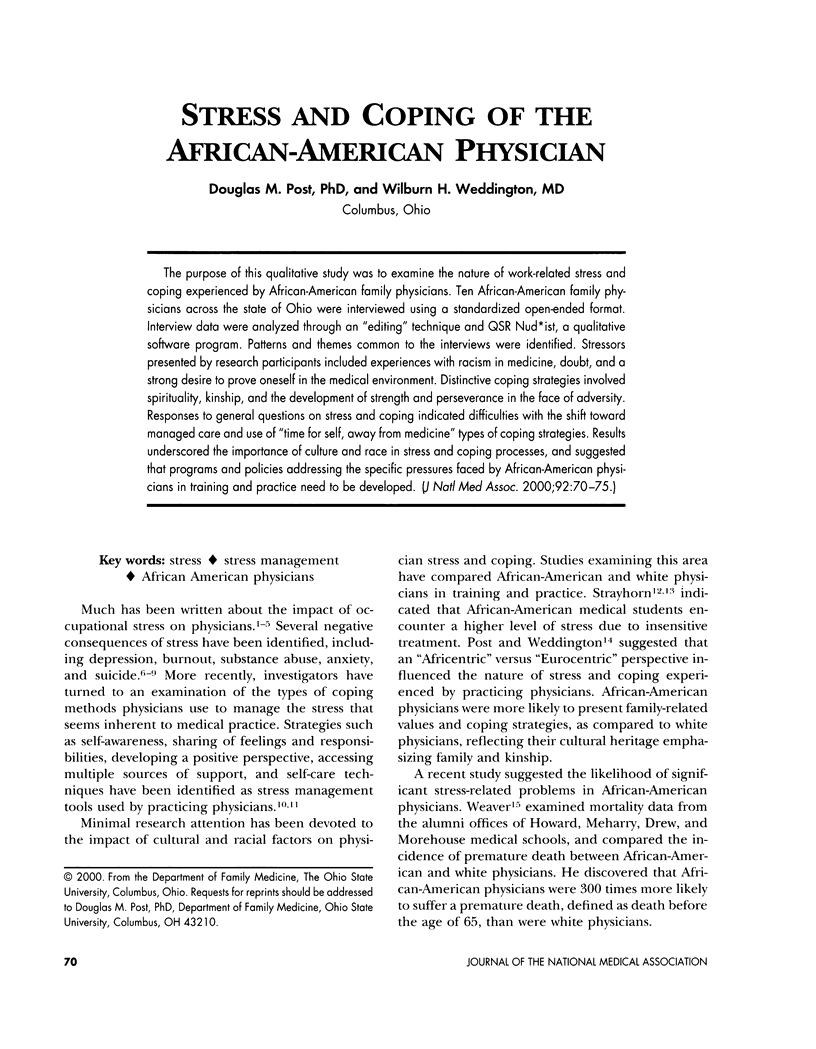
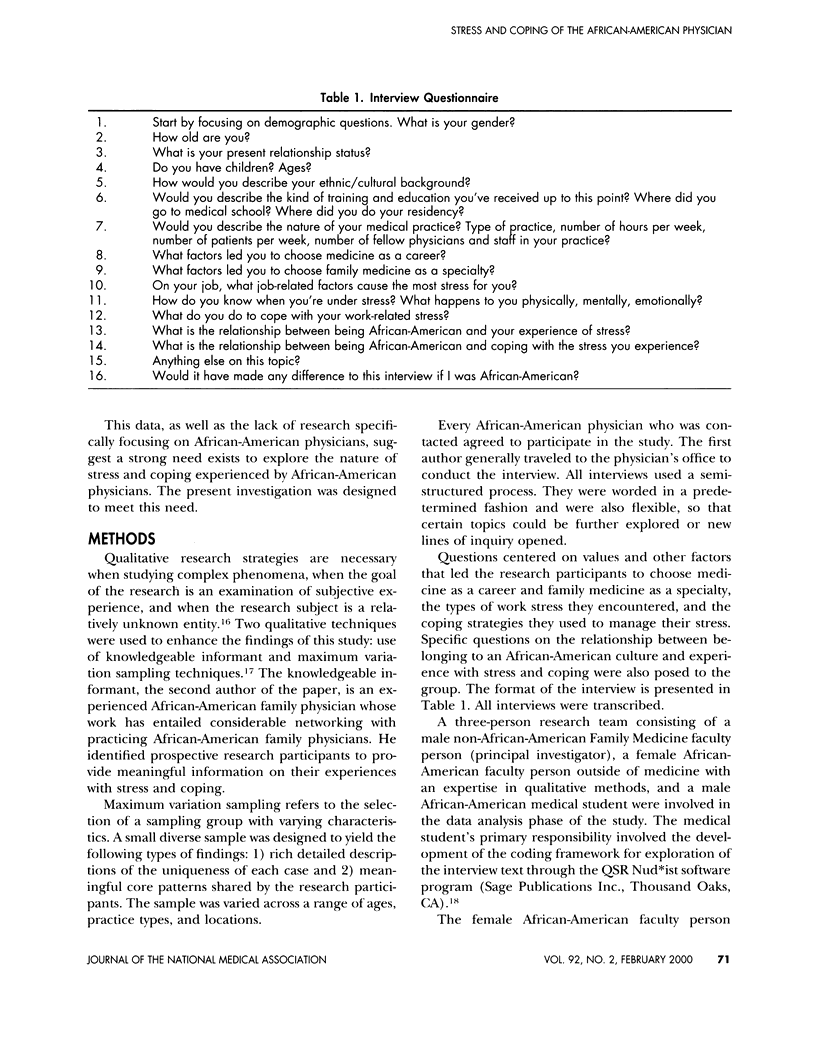
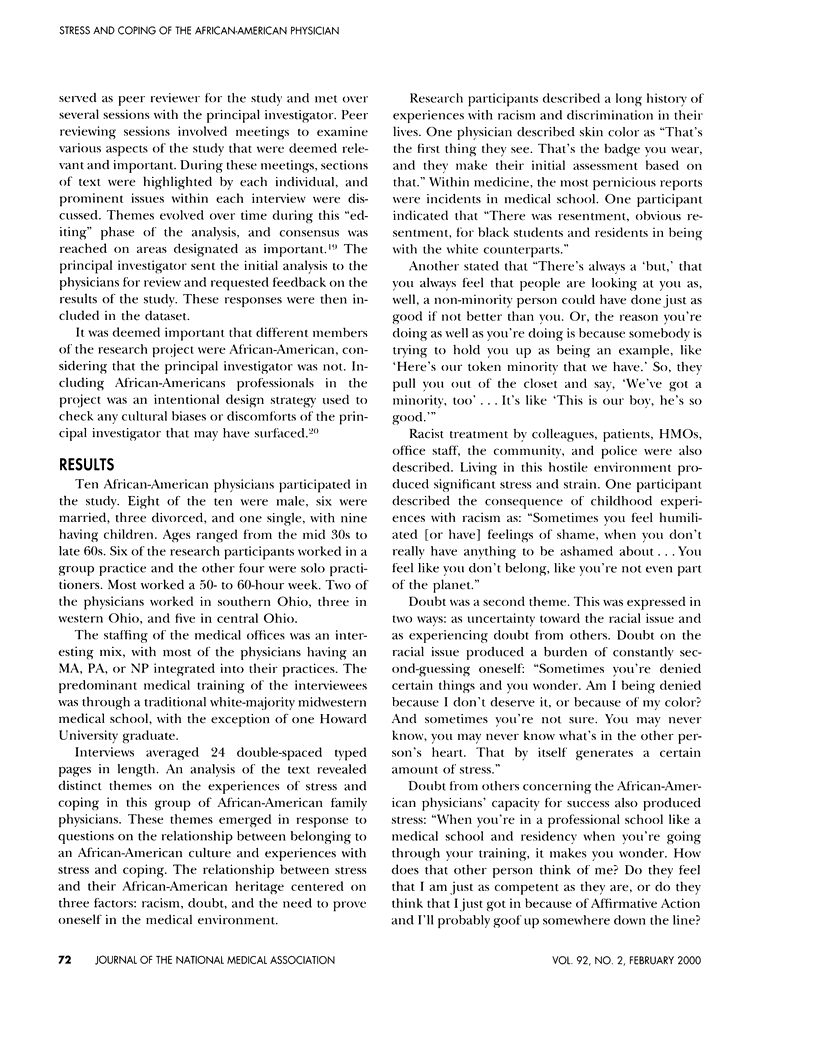
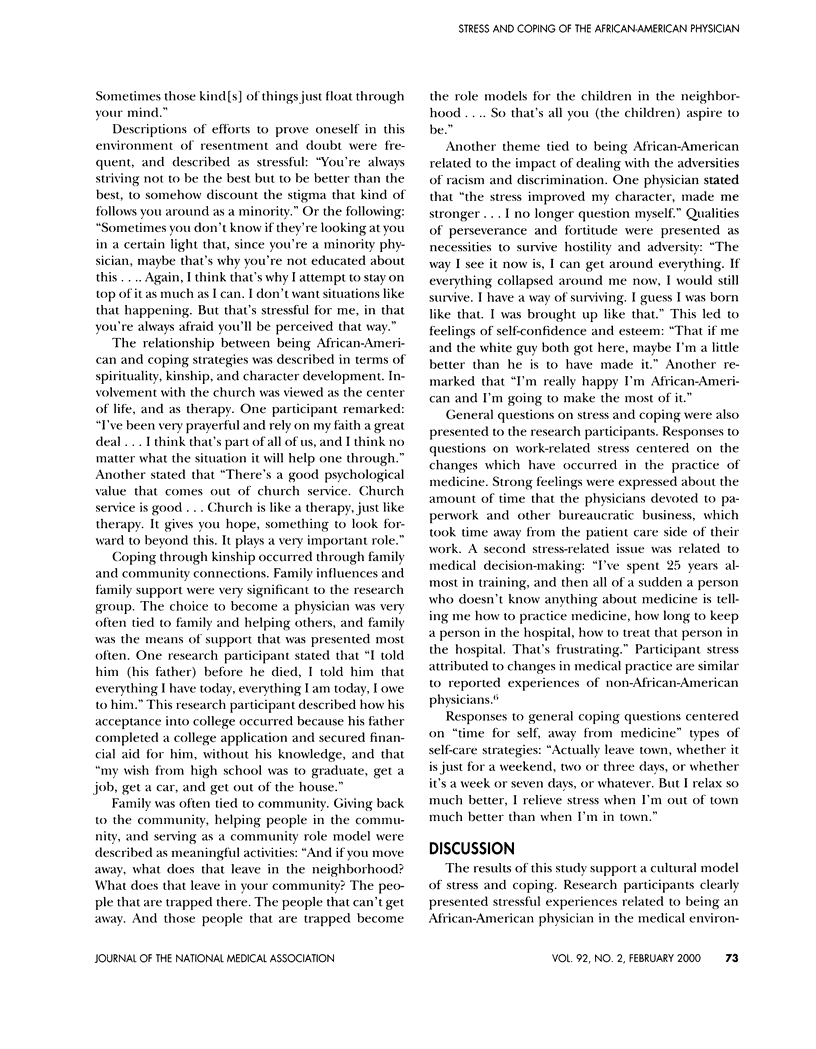
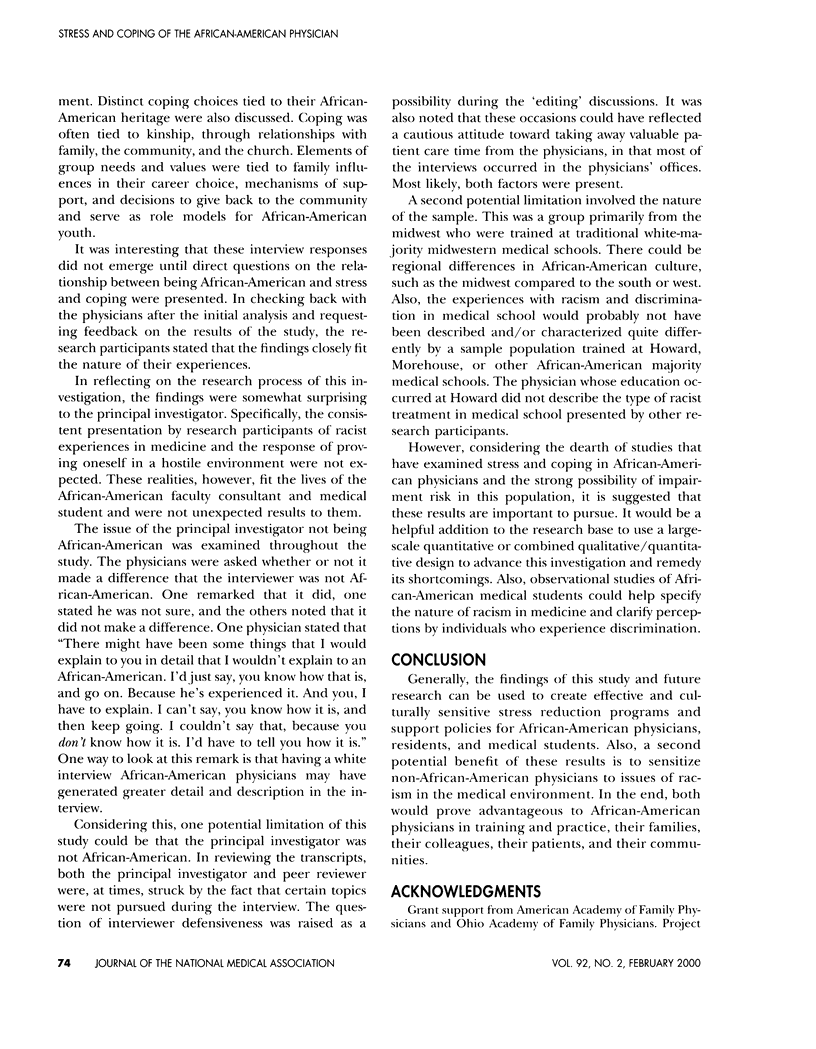
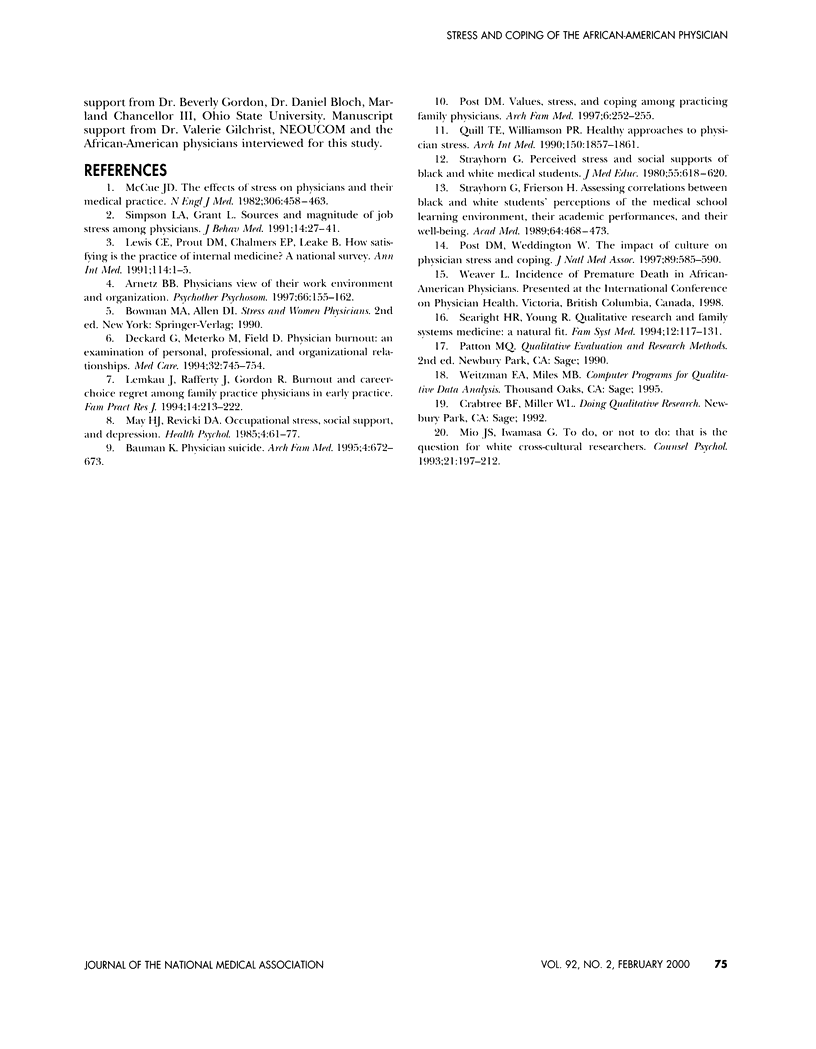
Selected References
These references are in PubMed. This may not be the complete list of references from this article.
- Deckard G., Meterko M., Field D. Physician burnout: an examination of personal, professional, and organizational relationships. Med Care. 1994 Jul;32(7):745–754. doi: 10.1097/00005650-199407000-00007. [DOI] [PubMed] [Google Scholar]
- Lemkau J., Rafferty J., Gordon R., Jr Burnout and career-choice regret among family practice physicians in early practice. Fam Pract Res J. 1994 Sep;14(3):213–222. [PubMed] [Google Scholar]
- McCue J. D. The effects of stress on physicians and their medical practice. N Engl J Med. 1982 Feb 25;306(8):458–463. doi: 10.1056/NEJM198202253060805. [DOI] [PubMed] [Google Scholar]
- Quill T. E., Williamson P. R. Healthy approaches to physician stress. Arch Intern Med. 1990 Sep;150(9):1857–1861. [PubMed] [Google Scholar]
- Revicki D. A., May H. J. Occupational stress, social support, and depression. Health Psychol. 1985;4(1):61–77. doi: 10.1037//0278-6133.4.1.61. [DOI] [PubMed] [Google Scholar]
- Strayhorn G., Frierson H. Assessing correlations between black and white students' perceptions of the medical school learning environment, their academic performances, and their well-being. Acad Med. 1989 Aug;64(8):468–473. doi: 10.1097/00001888-198908000-00011. [DOI] [PubMed] [Google Scholar]


